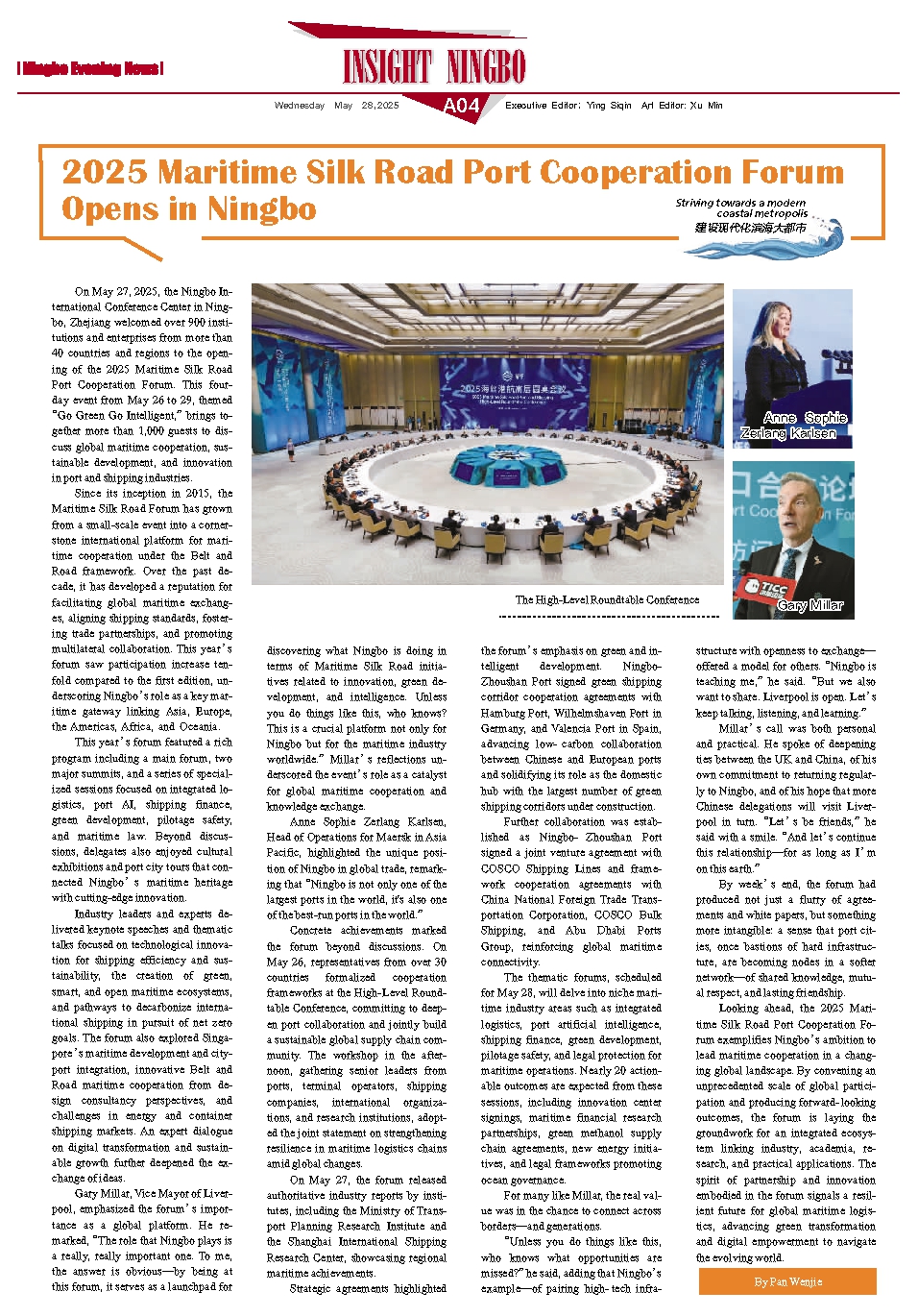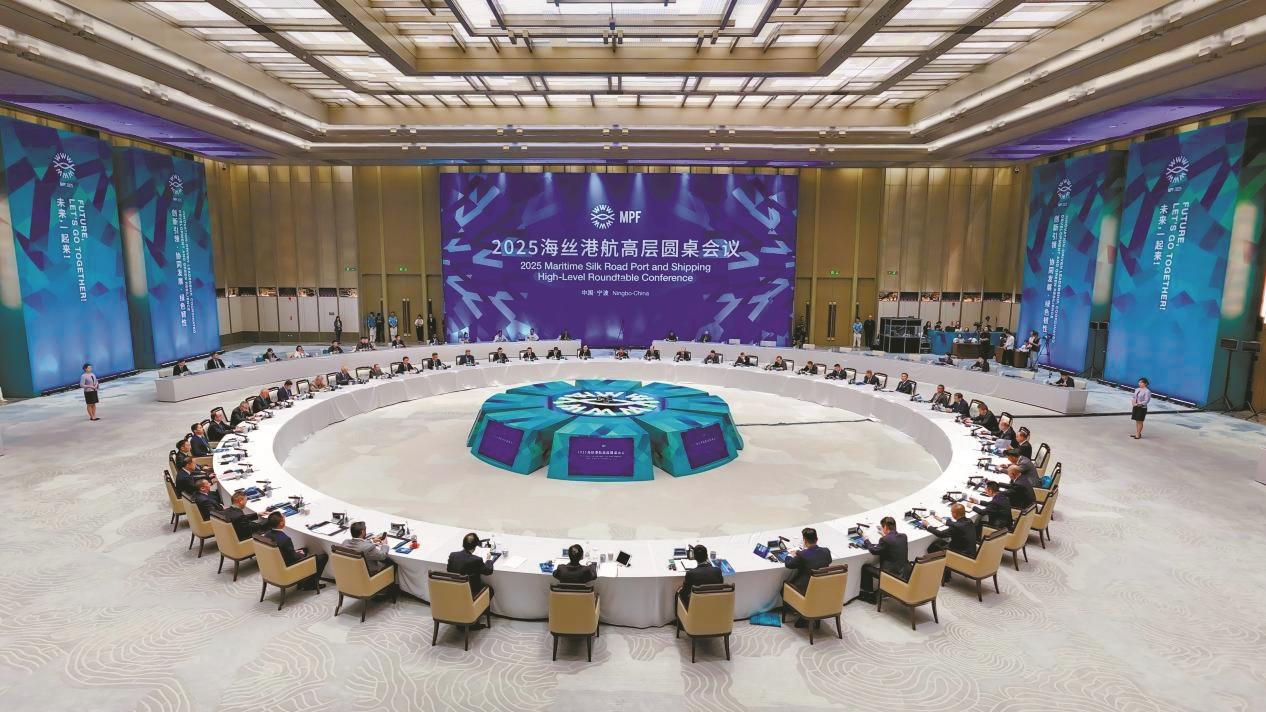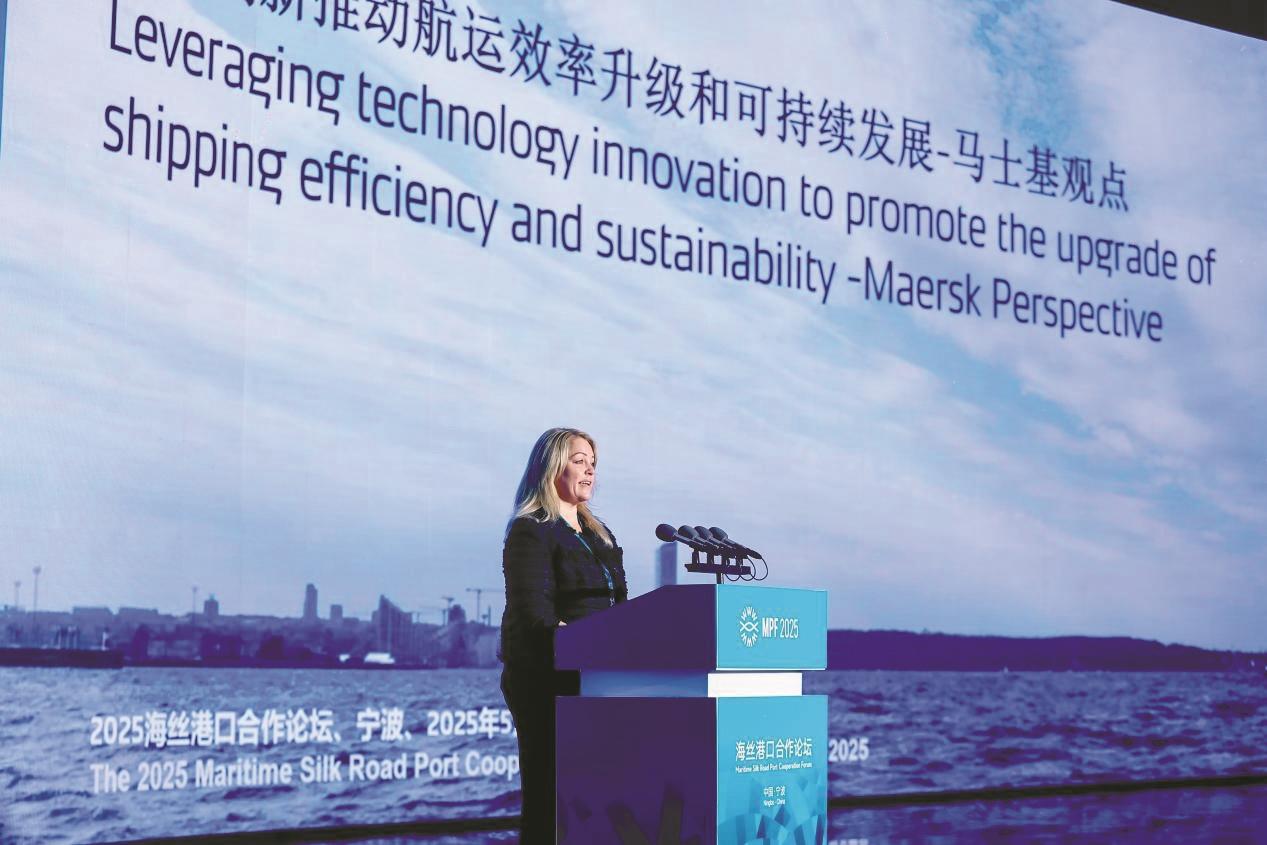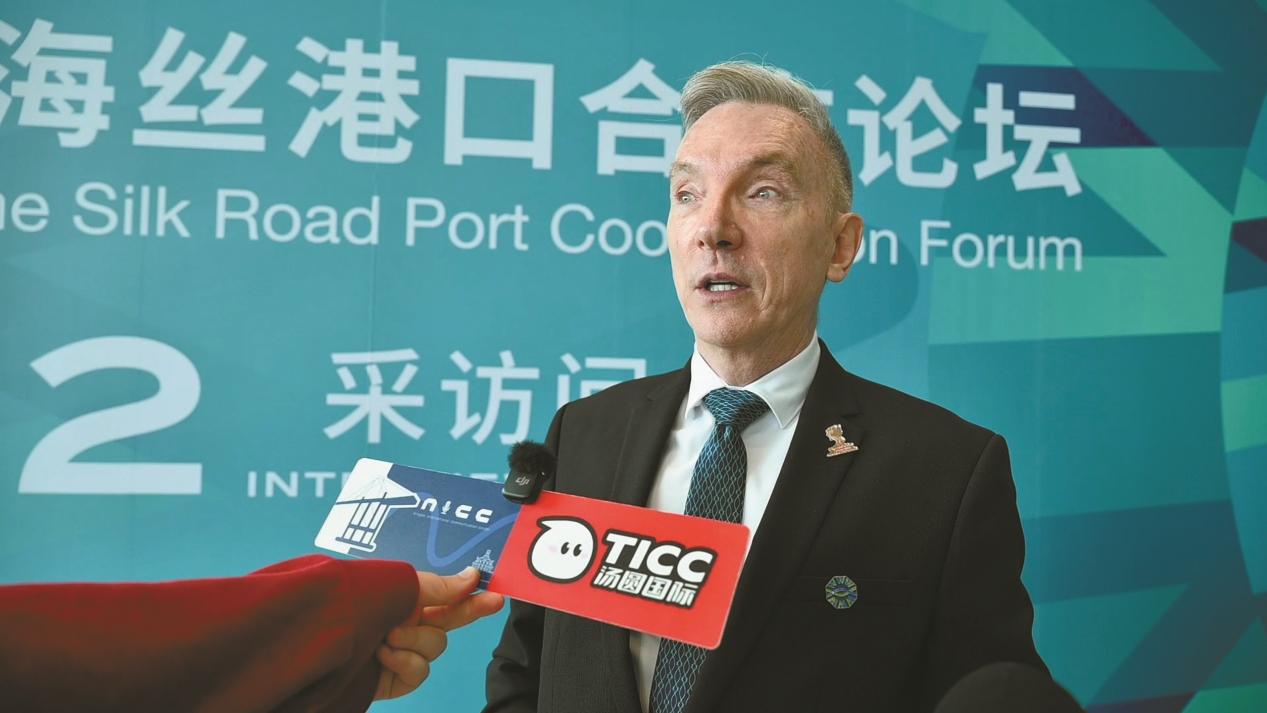On May 27, 2025, the Ningbo International Conference Center in Ningbo, Zhejiang welcomed over 900 institutions and enterprises from more than 40 countries and regions to the opening of the 2025 Maritime Silk Road Port Cooperation Forum. This four-day event from May 26 to 29, themed “Go Green Go Intelligent,” brings together more than 1,000 guests to discuss global maritime cooperation, sustainable development, and innovation in port and shipping industries.
Since its inception in 2015, the Maritime Silk Road Forum has grown from a small-scale event into a cornerstone international platform for maritime cooperation under the Belt and Road framework. Over the past decade, it has developed a reputation for facilitating global maritime exchanges, aligning shipping standards, fostering trade partnerships, and promoting multilateral collaboration. This year’s forum saw participation increase tenfold compared to the first edition, underscoring Ningbo’s role as a key maritime gateway linking Asia, Europe, the Americas, Africa, and Oceania.
This year’s forum featured a rich program including a main forum, two major summits, and a series of specialized sessions focused on integrated logistics, port AI, shipping finance, green development, pilotage safety, and maritime law. Beyond discussions, delegates also enjoyed cultural exhibitions and port city tours that connected Ningbo’s maritime heritage with cutting-edge innovation.
Industry leaders and experts delivered keynote speeches and thematic talks focused on technological innovation for shipping efficiency and sustainability, the creation of green, smart, and open maritime ecosystems, and pathways to decarbonize international shipping in pursuit of net zero goals. The forum also explored Singapore’s maritime development and city-port integration, innovative Belt and Road maritime cooperation from design consultancy perspectives, and challenges in energy and container shipping markets. An expert dialogue on digital transformation and sustainable growth further deepened the exchange of ideas.
Gary Millar, Vice Mayor of Liverpool, emphasized the forum’s importance as a global platform. He remarked, “The role that Ningbo plays is a really, really important one. To me, the answer is obvious—by being at this forum, it serves as a launchpad for discovering what Ningbo is doing in terms of Maritime Silk Road initiatives related to innovation, green development, and intelligence. Unless you do things like this, who knows? This is a crucial platform not only for Ningbo but for the maritime industry worldwide.” Millar’s reflections underscored the event’s role as a catalyst for global maritime cooperation and knowledge exchange.
Anne Sophie Zerlang Karlsen, Head of Operations for Maersk in Asia Pacific, highlighted the unique position of Ningbo in global trade, remarking that “Ningbo is not only one of the largest ports in the world, it's also one of the best-run ports in the world.”
Concrete achievements marked the forum beyond discussions. On May 26, representatives from over 30 countries formalized cooperation frameworks at the High-Level Roundtable Conference, committing to deepen port collaboration and jointly build a sustainable global supply chain community. The workshop in the afternoon, gathering senior leaders from ports, terminal operators, shipping companies, international organizations, and research institutions, adopted the joint statement on strengthening resilience in maritime logistics chains amid global changes.
On May 27, the forum released authoritative industry reports by institutes, including the Ministry of Transport Planning Research Institute and the Shanghai International Shipping Research Center, showcasing regional maritime achievements.
Strategic agreements highlighted the forum’s emphasis on green and intelligent development. Ningbo-Zhoushan Port signed green shipping corridor cooperation agreements with Hamburg Port, Wilhelmshaven Port in Germany, and Valencia Port in Spain, advancing low-carbon collaboration between Chinese and European ports and solidifying its role as the domestic hub with the largest number of green shipping corridors under construction.
Further collaboration was established as Ningbo-Zhoushan Port signed a joint venture agreement with COSCO Shipping Lines and framework cooperation agreements with China National Foreign Trade Transportation Corporation, COSCO Bulk Shipping, and Abu Dhabi Ports Group, reinforcing global maritime connectivity.
The thematic forums, scheduled for May 28, will delve into niche maritime industry areas such as integrated logistics, port artificial intelligence, shipping finance, green development, pilotage safety, and legal protection for maritime operations. Nearly 20 actionable outcomes are expected from these sessions, including innovation center signings, maritime financial research partnerships, green methanol supply chain agreements, new energy initiatives, and legal frameworks promoting ocean governance.
For many like Millar, the real value was in the chance to connect across borders—and generations.
“Unless you do things like this, who knows what opportunities are missed?” he said, adding that Ningbo’s example—of pairing high-tech infrastructure with openness to exchange—offered a model for others. “Ningbo is teaching me,” he said. “But we also want to share. Liverpool is open. Let’s keep talking, listening, and learning.”
Millar’s call was both personal and practical. He spoke of deepening ties between the UK and China, of his own commitment to returning regularly to Ningbo, and of his hope that more Chinese delegations will visit Liverpool in turn. “Let’s be friends,” he said with a smile. “And let’s continue this relationship—for as long as I’m on this earth.”
By week’s end, the forum had produced not just a flurry of agreements and white papers, but something more intangible: a sense that port cities, once bastions of hard infrastructure, are becoming nodes in a softer network—of shared knowledge, mutual respect, and lasting friendship.
Looking ahead, the 2025 Maritime Silk Road Port Cooperation Forum exemplifies Ningbo’s ambition to lead maritime cooperation in a changing global landscape. By convening an unprecedented scale of global participation and producing forward-looking outcomes, the forum is laying the groundwork for an integrated ecosystem linking industry, academia, research, and practical applications. The spirit of partnership and innovation embodied in the forum signals a resilient future for global maritime logistics, advancing green transformation and digital empowerment to navigate the evolving world.
By Pan Wenjie





